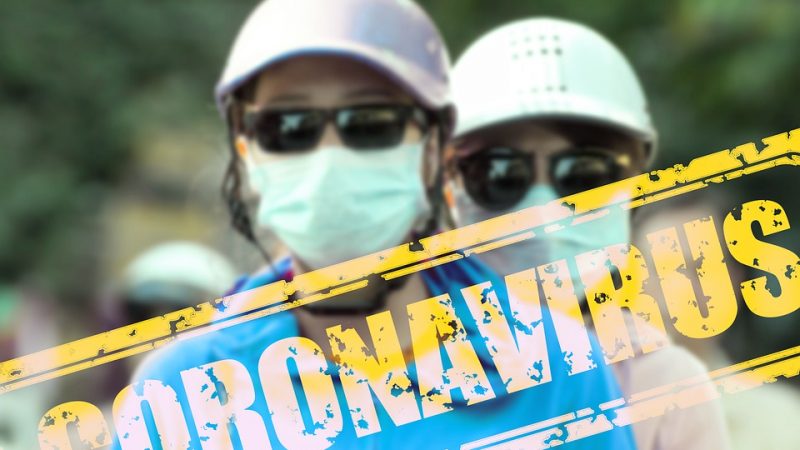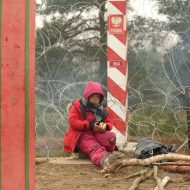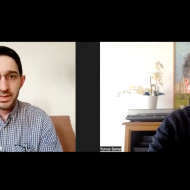In his latest act of sadistic geopolitical bloviation, US Secretary of State Mike Pompeo used the deadly coronavirus outbreak in Iran as an opportunity to criticize the country’s healthcare system and make crude accusations against its leadership. These comments were made in willing ignorance of the central role the US itself played in devastating Iran’s healthcare infrastructure with targeted sanctions.
“Their healthcare infrastructure is not robust, and to date, their willingness to share information about what’s really going on inside the Islamic Republic of Iran is not robust, and I’m very concerned… that Iran is not sharing information,” Pompeo smugly stated during a House Foreign Affairs Committee hearing on Friday.
The accusation is rather rich given that the response to the epidemic in the United States, the wealthiest country in the world, has proven rather wanting. Aside from only having tested some 500 people for COVID-19 (in comparison to 35,000 in South Korea) and the fact that there were numerous malfunctions reported with the tests that were carried out, there are only 12 labs in 5 states that are even capable of processing the tests.

Meanwhile, Trump has put Vice President Mike Pence in charge of handling the coronavirus in the United States: a man who responded to an HIV epidemic in his state by saying he would pray on the issue.
To add further insult to injury, Washington’s top diplomat also claimed that Iranian authorities had rejected their offer to help them contain the outbreak… what Iranian authority’s actually rejected, it turns out, was the idea that any such offer was made in the first place. Nonetheless, would it really have come as a surprise that Tehran would be hesitant about accepting “help” from such a dubious ally?
Pompeo has proven many times over that he has some rather twisted ideas about what constitutes “help.” It is rather difficult to believe his sincerity given that personal neocon crusade against the Islamic Republic has played a large part in policies such as the blockade of medical supplies and other basic necessities. It is perhaps indicative that Pompeo has regularly claimed that US sanctions play a “helpful” role in the lives of the Iranian people, despite how many of them have been ended by Washington’s draconian measures. A few months ago, Human Rights Watch released a report showing how the United States’ “Maximum pressure” campaign had become so severe it was even affecting exempted humanitarian transactions, threatening the wellbeing of millions.
Coupled with restrictions on food and critical medicines, there is little doubt that the United States’ “help” thus far has done little besides kill scores of civilians. Let us not forget that the man allegedly so eager to offer his government’s assistance is the same one that, just a few years ago, told Iranian leadership that they needed to obey the US “if they want their people to eat.” Pompeo’s strategy is essentially to starve and deprive the population to such an extent that they have no choice but to comply with regime change.
“The claim to help Iran in dealing with corona from a country who with their economic terrorism has created widespread pressure for the people of Iran and even closed the paths for buying medicine and medical equipment is a ridiculous claim and political-psychological game,” said Iranian FM spokesman Abbas Mousavi in response to Pompeo’s comments.
There is no doubt that the coronavirus outbreak in Iran has been worsened significantly by the “maximum pressure” campaign, especially given how it has specifically targeted the Iranian healthcare industry. The Trump administration so much as admitted that this was the case when it decided to ease up on humanitarian trade restrictions in light of the news of the outbreak. In other words, no one is denying that the US’ severe economic pressure has directly hindered the country’s ability to handle the epidemic.
Of course, Washington has made it perfectly clear throughout the years that they assign precisely zero value to Iranian lives: after all, they have still not apologized or admitted fault for gunning down Iranian Air Flight 655 in 1988, despite killing nearly 300 civilians. However, even if the US is more than willing to slaughter Iranians for short-term political goals, it will be interesting to see how Iran’s neighbors respond given the virus’ lack of adherence to the concept of national borders. Needless to say, calling the recent slight easing of economic pressure “too little too late” would not even begin to reflect the magnitude of the potential consequences.
While there are still conflicting accounts about exactly how many have died in Iran as a result of the virus, the death of several high-ranking political figures, including Iran’s former ambassador to the Vatican, have shown that the problem is extremely severe. In an unprecedented move, Iran even suspended the operations of parliament indefinitely to help prevent the spread of the epidemic. So far, there are over 300 confirmed cases of coronavirus in Iran which have resulted in 34 deaths, giving Iran the highest rate of mortality in the world in connection with the virus.
The Iranian government’s natural reaction has been to be controlled in the way it releases information in order to prevent panic… just like every other government which has been affected. Nonetheless, the Western media has been swift to use the tragedy to their geopolitical advantage, calling the efforts a “coverup” and blaming the Iranian government for the situation. Pompeo repeated this argument in his scornful comments on Friday.
The abominable cynicism of crippling a country economically, targeting their healthcare industry and then arguing they themselves are responsible for rejecting help (which was likely never actually offered) was likely not lost on anyone, but this kind of belligerence has long been par for the course in US’ foreign policy toward Iran. If Pompeo’s blathering about the coronavirus outbreak hadn’t made this fact clear, it was certainly was after members of the House of Representatives pressed him regarding the extra-judicial assassination of Quds force Commander Qassem Soleimani at the beginning of the year.
“One hundred percent in a very short timeframe, he was in the region actively plotting to kill Americans,” Pompeo blustered in defense of drone bombing a high-ranking foreign official during peacetime.
“I have seen that classified information and after reviewing it, I don’t think that you are telling us the truth,” House Democrat Joaquin Castro responded.
What Casto missed, however, is that the US has long ago given up on providing credible justifications for its aggression. Pompeo is well aware that Soleimani posed no immediate threat to American lives, and equally well aware that by assassinating him, American lives actually would end up being put in jeopardy. He is also completely aware of Soleimani’s role in the fight against ISIS, and how his assassination contributed to global terrorism. At the same time, there is no doubt that he understands that the US’ sanctions regime is contributing to the spread of coronavirus not just in Iran, but in the entire region. Pompeo is not only aware, he is counting on the geopolitical advantage the chaos will grant Washington: regardless of the body count.









Leave a Reply